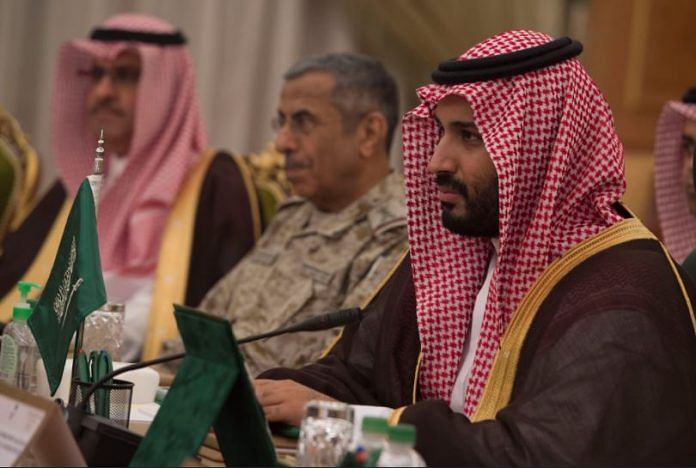King Salman’s unprecedented purge of the royal family in Saudi Arabia last week will have reverberations that go far beyond the country’s borders.
In some not-too-distant future, peace-loving Muslims around the world may ask, “Where were you when a rising leader of Saudi Arabia, custodian of Mecca and thus defender of the faith, openly turned against the extremism his countrymen helped spawn and spoke out for ‘moderate Islam?’”
My answer: By coincidence, I was at this earthquake’s epicenter in Riyadh.
King Salman’s unprecedented purge of the Saudi royal family last week will have reverberations that go far beyond the country’s borders. The purge’s possible architect and certain benefactor was the king’s son, the 32-year-old Crown Prince Mohammed bin Salman. The facts by now are well-known – recounted in the week’s top reads below — but their importance has been underestimated.
Indeed, with Mecca and its two million annual pilgrims, Saudi Arabia is the center of global Islam. With its escalating battle with Iran, it is the vanguard in the Sunni-Shia rivalry. As one of the world’s top two oil producers and exporters, it remains a force in the global economy. And as the largest military power among Arab Gulf states, it is a key US regional ally against terrorism.
Talk to royal family members in Saudi Arabia over the age of 50 and you’ll hear whispered trepidation over what they consider the reckless actions of a headstrong prince. By contrast, one hears a new sense of optimism and opportunity among Saudis under 30, who make up some 70% of the country’s population, and young women, who account for the majority of the country’s graduate students.
Given Saudi Arabia’s last three decades of stagnation, it’s not surprising that media reports and expert analysis about the Crown Prince’s anti-corruption campaign were laced with skepticism and even cynicism. His means have been authoritarian, and official explanations have been incomplete. Amid all this, the apparently forced resignation of Lebanese Prime Minister Saad Hariri reflects badly on a leadership that’s trying to sell itself as more modern.
Still, none of that should obscure the possibility that the country that long produced and explored much of Islam’s ideological extremism, a country that for decades seemed impermeable to change, could now have a leader who wants to put Saudi Arabia at the forefront of religious moderation and economic modernization.
No one can predict whether MBS, as the Crown Prince is known, will succeed in his historic ambitions. What I don’t question, having spent considerable time with MBS, is his understanding of both history and his passion for shaping a better future. Given his age, he has the potential of putting his stamp on Saudi Arabia, the region and the Islamic world for decades to come.
With that context, his recent words to global investors are worth repeating here: “We are returning to what we were before, a country of moderate Islam that is open to all the religions of the world. We will not spend the next thirty years of our lives living with destructive ideas. We will destroy them today.”
Fred Kempe is the president and CEO of the Atlantic Council. This appeared in his newsletter titled Inflection Points.



